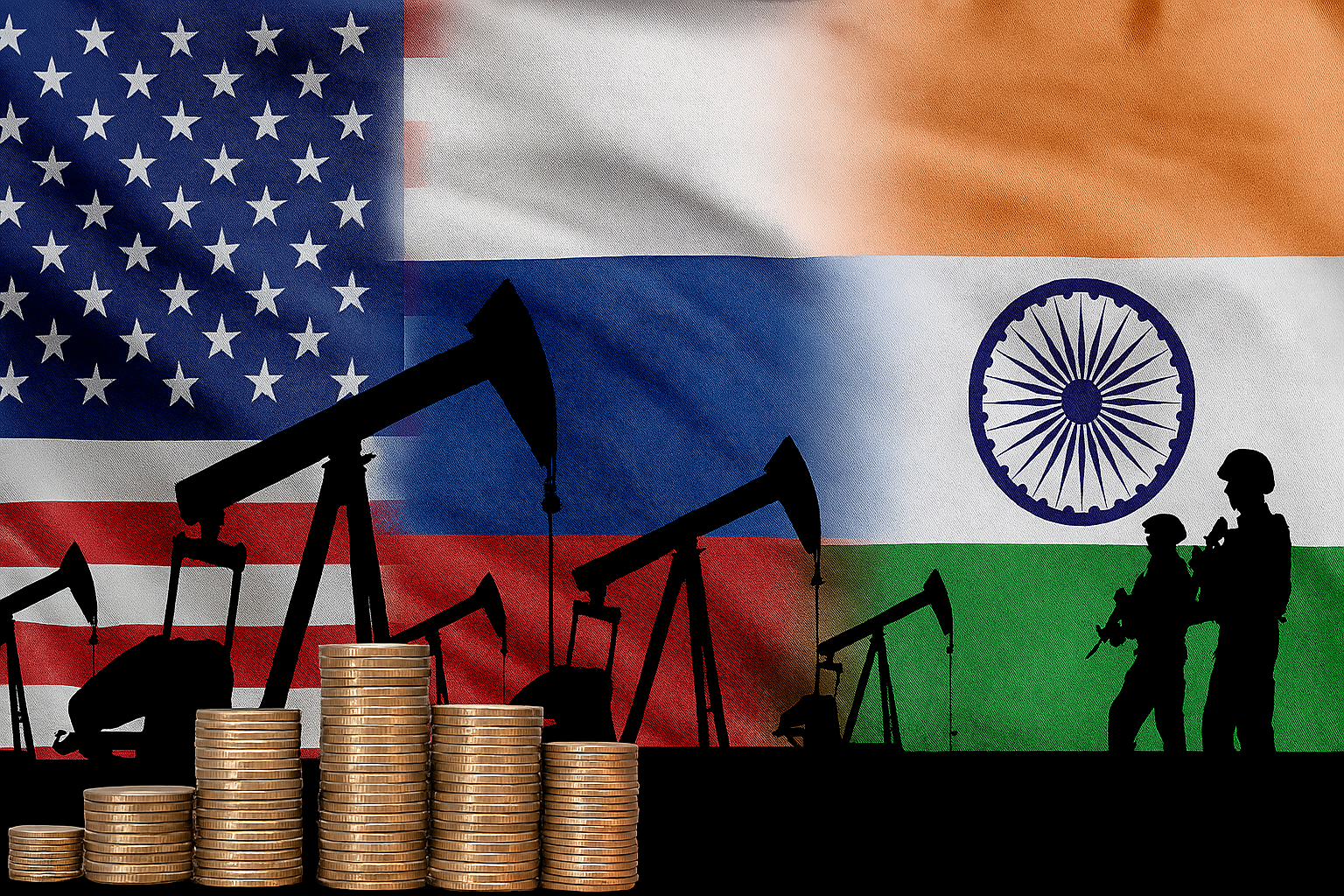The U.S. sanctions and global energy politics have become deeply linked as Washington targets Russia’s oil sector to pressure Moscow into peace talks with Ukraine. The United States recently imposed sanctions on Rosneft and Lukoil, Russia’s largest oil companies, arguing that oil revenues directly fund the war effort. American officials said sanctions are vital to weaken Moscow’s military capability and push for peace.
U.S. Strategy Behind the Sanctions
President Donald Trump said his talks with Vladimir Putin were often positive but failed to bring real progress toward ending the conflict. After meeting NATO Secretary General Mark Rutte, Trump said stronger measures were needed to force Russia toward serious negotiations.
Russia warned that targeting its energy companies would shake global oil markets, reduce supply, and raise prices, especially hurting developing nations. The Russian embassy in London claimed the sanctions would threaten energy security worldwide, raising costs and blocking peace efforts.
Escalation in Ukraine and Western Response
As the sanctions took effect, Russia launched heavy airstrikes on Ukraine, killing civilians and reinforcing Washington’s stance that tougher action was essential. U.S. Treasury Secretary Scott Besent said sanctions were necessary because Putin refused to stop the war. He called them both a “moral and strategic step.”
Trump described the sanctions as long overdue but essential, saying they could be lifted if Russia agreed to peace. European leaders and Ukrainian President Volodymyr Zelensky praised the decision, calling it fair and effective. Britain and the European Union quickly aligned with Washington, showing unity in isolating Russia economically and politically.
India’s Energy Dilemma Amid Sanctions
The U.S. sanctions and global energy politics have also placed India in a difficult position. India imports about 85% of its crude oil and depends on affordable supplies to sustain its 1.4 billion citizens. Since the Ukraine war began, India and China have increased purchases of discounted Russian oil despite Western pressure.
Between January and July, India imported nearly 1.73 million barrels of Russian oil daily, about one-third of its total imports. Major buyers like Reliance Industries and Nayara Energy deepened ties with Rosneft, which owns a large stake in Nayara. Britain and the EU later sanctioned Nayara, accusing it of violating restrictions. Nayara responded that it follows Indian law and serves the country’s energy needs, calling the sanctions politically motivated.
India’s Balancing Act in Global Energy Politics
Prime Minister Narendra Modi assured Trump that India was cutting Russian purchases, but data shows Russia remains its top supplier. India continues to defend its energy independence, saying affordable oil is vital for national stability. Rising fuel costs could hit millions of households and slow economic growth.
Russia exports about 3.1 million barrels per day, roughly six percent of global supply. Its oil remains key to global stability, making India’s decisions crucial. The U.S. urged India, China, and Turkey to reduce Russian imports, but India insists it will prioritize domestic interests.
Future of Energy Diversification
Energy diversification could help India reduce dependence on Russia. New Delhi is exploring deals with Middle Eastern and African suppliers, but Russian oil remains cheaper and easier to access. Analysts believe India will keep buying Russian crude despite challenges in payments and logistics caused by sanctions.
Experts suggest India may expand rupee-ruble trade or other local currency mechanisms to manage sanctions. However, they also stress that long-term diversification is essential for sustainable energy security.
The Road Ahead for India and Global Energy
The U.S. sanctions and global energy politics reveal how tightly connected geopolitics and economics have become. India must balance affordability, security, and global diplomacy as it navigates pressure from both the West and Russia.
Its response will shape not only its energy future but also global oil markets. The coming months will test India’s diplomatic skill as it manages competing interests without compromising national growth or stability.
